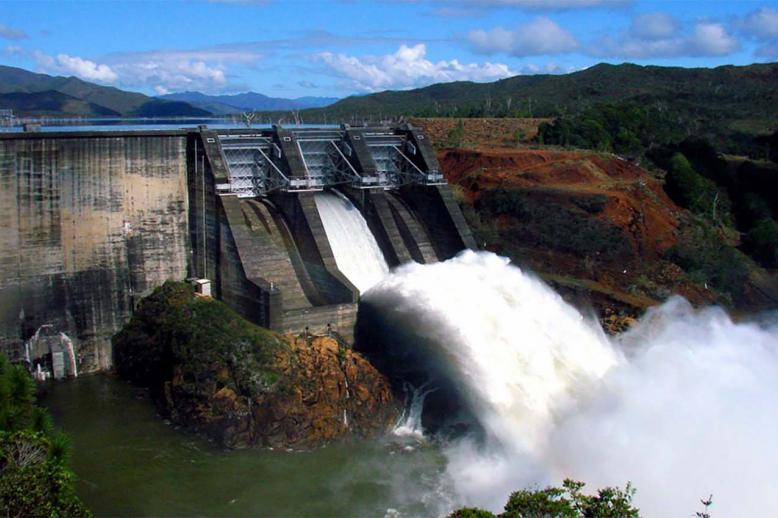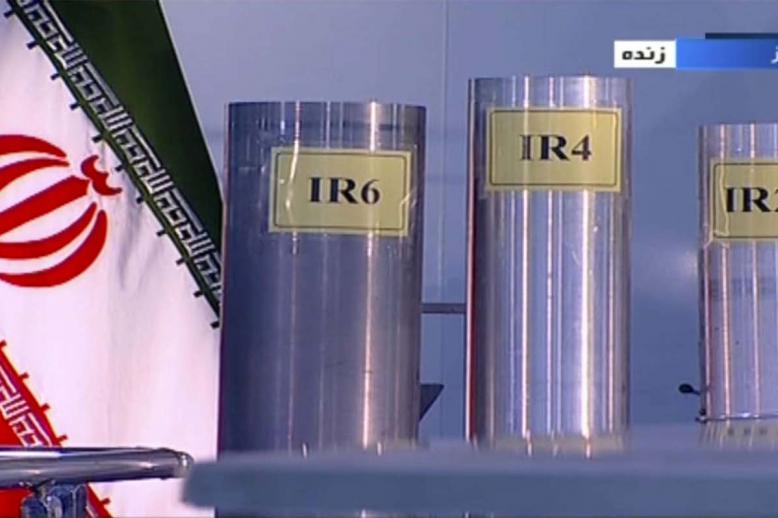Saudi rise amid a tired Arab world
As it looks at its global position, Saudi Arabia sees itself holding the stature it deserves. There are several reasons for that. No one wants to say that Riyadh invested heavily in order to reach that stature as Saudi Arabia has had its share of regional mistakes. What is more important, however, is that the Saudis have engaged a tangible process of reform.
There is a new Saudi Arabia today. It is so, perhaps, because of the experiences it has had and the lessons it has learned from its past mistakes. Some of these shortcomings, let it be said in passing, have resulted from the actions of some regional players. Momentum has been building with the best yet to come and more achievements are expected.
But is this enough? It is hard to say. Certainly, Riyadh needs to move forward in addressing certain details which seem to be small but have constituted prohibitive choke-points on many occasions.
Take, for example, the Saudi-Chinese relationship. No one disputes the importance and scope of this relationship. China is a giant. But is referring to China as a giant enough in itself as an explanation? Perhaps, but it is really difficult to tell because of the nature of the complex ramifications involved.
The Chinese, for example, bet on trade relations, and always emphasise that one of the key considerations of the relationship is to avoid interfering in private matters. There is a logic underlying such an approach, but is this possible in today’s world?
The Saudis were ruffled and their ties with the United States frayed during the Jamal Khashoggi crisis which brought the relationship to its lowest point. Tempers later subsided allowing the relationship to be eventually restored.
Still, can one talk of a balanced relationship between the two countries considering the traditionally close bonds between them? The initial impression created by the Joe Biden administration is that it wanted to settle scores with Saudi Arabia. Before Biden left office, things returned to a level of normalcy and steered away from the crisis zone.
This kind of turbulence may seem useful on in any relationship as it provides an opportunity to repair ties instead of leaving problems unattended. Muffled tensions could be a time-bomb threatening to cause major damage down the road.
This is not the first time US-Saudi relations have witnessed shocks of this kind. There was the jolt caused by of the movie “Death of a Princess” in the early eighties. Then, there were the wavering of Democrats, who became naively adept at creating crises hence begging the question: why did such crises start in the first place?
There has been a good number of veteran Saudis and American actors throughout the history of relations between the two countries. Such people can absorb shocks. But there was never a guarantee that the relationship would not be deeply shaken to a point where resolution of the contentious issues remains forever elusive.
Some senior figures in the Saudi royal family have played the role of firefighter- diplomats. A number of such people are still active today. These include Turki al-Faisal, the former ambassador to Washington and long-time Saudi intelligence chief, or Prince Bandar bin Sultan, the former ambassador and national security advisor. The two are important figures no doubt. Their interventions proved crucial. But people age and change, and the world moves on.
Faisal, who inherited the legacy of his father (King Faisal bin Abdul Aziz) and brothers (foreign minister prince Saud Al Faisal and senior adviser to king and governor prince Khaled Al Faisal), needs to periodically update his connections in Washington. The same can be said about his cousin and in-law, Prince Bandar bin Sultan. But if one looks at the Saudi-Chinese-Iranian mediation which took place two years ago one will find that the Chinese dimension of the relationship has evolved a great deal and could evolve even more.
There is an additional dimension to this type of investment in relationships. If one looks at a figure like the Saudi crown prince one is likely to each the conclusion that Mohammed bin Salman wanted to change the idea of political and diplomatic fiefdoms, which he had inherited from an era governed by the “horizontal” transfer of power, that is, when powers used to be transferred between brothers.Security issues would be entrusted with Prince Nayef bin Abdulaziz at the interior ministry, while Yemen or arms deals would be entrusted with Prince Sultan bin Abdulaziz at the ministry of defence.
The Chinese know Saudi King Salman bin Abdulaziz’s decision to end the expansion of dynastic fiefdom and limit power to the king’s immediate family, with the crown prince holding the premiership and through that assuming absolute power in more than one sector, including defence and the conclusion of major deals. In this critical juncture, an important task is the control of energy investments and redirecting these investments within plans akin to other “vision” projects of the United Arab Emirates, Oman, Qatar, and others.
Here one needs to dig deeper and ask what is to come next politically. The leading player today is the crown prince, as the king paves the way for the young heir to succeed him.
Where does this formula leave Saudi Arabia? The answer to this question cannot bear ambiguities and none were left in this regard. The Saudis, for example, are dealing with a new world that is vibrating with change.
When it comes to what will happen next, the Saudi monarch is assigning the reins of power for the future in their entirety to the crown prince. When war erupted between the West and the East in Ukraine, the issue was kept exclusively in the hands of Prince Mohammed bin Salman. Over the years, the entire circle surrounding the Saudi crown prince abided by this decision, which became a sovereign matter where not even MbS’s brothers ventured to involve themselves. Today, with the end of US Democrats’ brinksmanship in Ukraine, diplomatic activity regarding the conflict has resumed but under the aegis of its “legitimate” and “sole” custodian of the issue.
Do the Chinese, for example, see the matter from this perspective so that they can say: Yes, this is how things are tackled in Saudi Arabia and this is how the Gulf powerhouse regained its stability.
Many in the world have expressed interest in the roots of Saudi stability and the Arab Gulf’s ability to anchor this type of stability as a basis for governance and tranquility in the region, and not as some might think as a way to buy loyalties.
This is what has made a veteran intelligence figure like Vladimir Putin knock again on Saudi Arabia’s doors to tell its leaders: Others have floundered when dealing with the issue. We need to reexamine the factors at play. This is not an easy matter, because everything turns around oil, energy and finance. At every juncture there are complex considerations that need to be heeded without a doubt.
There have been several priorities in Saudi internal thinking that have emerged over the years. There are many observations that can be made about the Saudi method of governance. But one certainly cannot say that it is an institution indulging in improvised decisions. The Saudis have most certainly made mistakes like all politicians in the region and the world, but over time they have learned how to correct course.
Based on their mistakes and subsequent corrections, they learned how to adjust their policies based on the reactions of others, especially those of their first ally, the United States.
Today, the Saudis stand at a crossroads. They have decided on how to deal with the United States. Riyadh has made up its mind on when it must accept intense frictions and when it must consider tensions a waste of energy and a threat to its status.
The results of the successive lessons learned are put to a serious test today. There is a “new” US administration with which Riyadh can deal with without many hurdles. The accumulated wisdom of the relationship covers security, economic and political factors, but it also includes important strategic factors, such as China’s role.
China is the most important international player now, no matter how others try to depict it, whether as the world’s factory or its financier. China has earned its global place as a superpower, no matter if and how others try to besiege it.
Knowing how China sees itself, for example, depends to a large extent on knowing how Russia perceives Beijing. This is not a simple task, as it is subject to continuous change, as was the case many times since the end of the Cold War.
Saudi Arabia itself, like Russia and China, is re-examining its positions and telling the world, “Here I am.”
This is not just an up-and-coming country, but one which plans to become a major regional power interacting with other players such as Turkey and Iran. It wants to prove to today’s world that it cannot be ignored. Is there anyone with the right mind who can downplay the importance of the Saudi factor when talking about OPEC? How many countries in the world can raise a trillion dollars when negotiating a deal?
Saudi Arabia can stumble at times when making strategic decisions, and that is more than normal. But Saudi Arabia has enough resources and capabilities to pick up the pieces and forge ahead.
Is Saudi Arabia now an arbiter of major strategic decisions? There is no doubt about it. But in addition to that, it has huge intrinsic capabilities that make it more than just a deals broker. Saudi Arabia has risen to the level of a major global economic power, with all the problems and risks this status entitles.
This brings us back to a critical point. The Gulf is calm now. Paying attention to the Saudi factor is important. What is true for Saudi Arabia also applies to the UAE and Qatar. The Emiratis have largely succeeded in preventing the humanitarian crisis of the Palestinians in Gaza from unraveling and have continued to fund and rehabilitate Palestinians in the West Bank, but most critically in Gaza.
It did so while remaining unfazed by the sharp diatribes of the Palestinians who have unfortunately gone to great lengths to blame everyone but themselves while lauding the heroism of Yahya Sinwar, despite the disasters he has wrought on Gaza and its people. Such disasters dwarf the catastrophes of the 1948 “Nakba” and the 1967 “Naksa”, along the path of destruction brought about by Israel’s relentless campaigns.
The Qataris are also credited –despite what one can think of them, with having managed to achieve their goal of completing the negotiations they promised. And now they are forcing Israeli Prime Minister Binyamin Netanyahu to commit (perhaps reluctantly) to the terms of the truce while awaiting the final chapter of the conflict to unfold.
This is no easy matter with an ever-maneuvering enemy like Israel, which has learned over the years the art of evading responsibility.
You can heap as much blame as you want on Arab governments and express puzzlement over the stale photos of the recent a meeting of Arab leaders, which we eventually discovered was just an informal chat session.
But this is maybe the most which can be achieved in the current juncture. There will be more and there is reason to aspire to more. In the end, this is Gaza and this is Palestine. This is an issue which cannot be confined to a day or a month or even a year. It is an issue that transcends continents and particular eras.
Developments are unfolding against a regional background of manifold problems.
A calm Arabian Gulf could be the starting point for a calm Arab region and a calmer world. Everyone is exhausted and it is time for a break.
Haitham El Zobaidi is the Executive Editor of Al Arab Publishing House







